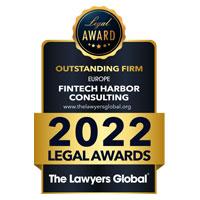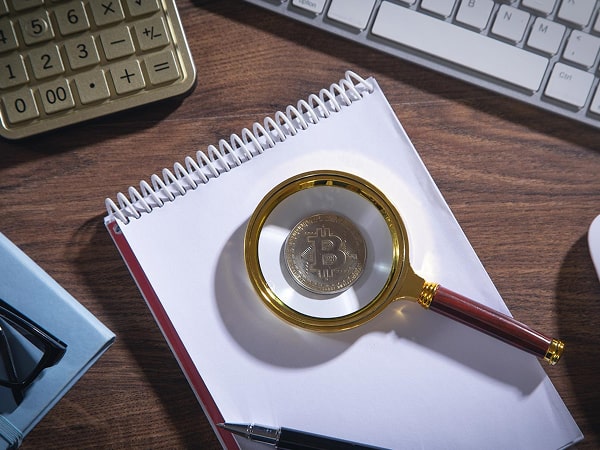Crypto License in Lithuania
Contents
- Overview of Cryptocurrency in Lithuania
- Benefits of Obtaining a Crypto Exchange License in Lithuania
- Costs and Fees Associated with a Lithuania Crypto License
- Requirements for Obtaining a Lithuania Crypto License
- Process of Securing a Lithuania Crypto License
- Crypto Regulations in Lithuania: How MiCA Impacts the Market?
Overview of Cryptocurrency in Lithuania
Lithuania is a leading European jurisdiction for cryptocurrency businesses, offering a well-regulated and business-friendly environment. The country follows EU financial directives, ensuring security and transparency for companies and investors.
To legally operate in the digital asset sector, businesses must obtain a VASP license in Lithuania. This license allows companies to offer virtual asset-related services, including exchange, custody, and transactions. Additionally, businesses can apply for a virtual asset license in Lithuania, which grants permission to engage in crypto-related operations under the European regulatory framework.
With a rapidly growing fintech industry, government support, and clear regulatory guidelines, Lithuania is an ideal choice for crypto startups and established enterprises seeking legal certainty and market expansion.

Benefits of Obtaining a Crypto Exchange License in Lithuania
- Access to the European Market – A Lithuanian crypto license allows businesses to operate across the EU’s single market, enabling seamless cross-border transactions and a broad customer reach.
- Regulatory Stability & Legal Clarity – Lithuania offers a transparent and well-regulated framework, ensuring compliance with EU financial regulations and building trust among investors and clients.
- Cost-Effective Licensing & Business Setup – Compared to other European countries, Lithuania provides a more affordable and streamlined licensing process, making it an attractive hub for crypto businesses.
- Favorable Tax Policies & Government Incentives – Crypto-related businesses benefit from competitive tax rates and state-supported initiatives aimed at fostering fintech innovation.
- Recognition in the Lithuania crypto license register – Licensed companies are officially listed in the national register, reinforcing their legitimacy and enhancing their credibility within the industry.
- With a strong regulatory framework and a favorable business environment, Lithuania continues to attract crypto entrepreneurs looking to establish and expand their operations in the European market.
Costs and Fees Associated with Lithuania Crypto License
When planning to apply for a crypto license in Lithuania, businesses should be aware of the financial requirements associated with the licensing process. Some of the key costs and fees include:
- Minimum Share Capital Requirement – Companies must have a minimum share capital of €125,000 to qualify for a crypto license. This capital ensures financial stability and regulatory compliance.
- Ongoing Compliance & Operational Costs – Maintaining a Lithuanian crypto license involves regular compliance obligations, such as AML/CFT reporting, audits, and operational expenses.
- No State or Application Fees – Unlike other jurisdictions, Lithuania does not impose government or application fees for obtaining a crypto license, making it a more cost-effective option for startups and established firms.
With a transparent licensing process and a lower financial barrier compared to other European countries, Lithuania remains an attractive destination for crypto businesses seeking regulatory approval.
Our awards






Requirements for Obtaining a Lithuania Crypto License
- UAB Registration – The company must be registered as a Uždaroji Akcinė Bendrovė (UAB), which is the equivalent of a private limited liability company in Lithuania.
- VASP Registration Lithuania – To legally operate as a virtual asset service provider, businesses must complete the process of VASP registration in Lithuania, ensuring compliance with local financial regulations.
- Minimum Share Capital Requirement – Depending on the type of license, the company must maintain a minimum share capital, with specific amounts defined by regulatory authorities.

- KYC and AML Compliance – The company must implement strong Know Your Customer (KYC) and Anti-Money Laundering (AML) policies to prevent fraud and ensure regulatory adherence.
- Business Plan and Risk Management – A detailed business plan outlining operational strategies, financial projections, and risk management policies is required.
- Fit and Proper Test – Key personnel, including company directors and compliance officers, must pass a fit and proper test to confirm their competence and reliability in managing financial services.
- By meeting these requirements, companies can secure a Lithuanian crypto license and establish a legally compliant presence in the growing European digital asset market.
Process of Securing a Lithuania Crypto License
To obtain a VASP license in Lithuania, businesses must follow a structured process that ensures compliance with national and EU regulations. The key steps involved in securing a crypto license in Lithuania include:
- Company Registration – Establish a UAB (private limited company) in Lithuania, which serves as the legal entity for conducting cryptocurrency-related activities.
- Due Diligence & Document Preparation – Conduct a thorough compliance review to ensure adherence to Lithuania’s crypto regulations. This includes preparing all necessary documentation, such as business plans, AML/CFT policies, and shareholder agreements.
- Formal Application Submission – Submit the completed application to the Bank of Lithuania and the Financial Crime Investigation Service (FCIS) for review.
- Regulatory Review & Assessment – Authorities conduct a detailed examination of the application, assessing the company’s financial stability, AML procedures, and overall compliance with local and EU laws.
- License Approval & Business Register Update – Upon successful evaluation, regulatory bodies grant the license and update the Business Register, officially recognizing the company as a Virtual Asset Service Provider (VASP).
- Once a business successfully obtains a VASP license in Lithuania, it gains the legal right to provide virtual asset services within Lithuania and across the European Union, benefiting from the region’s financial market integration and regulatory stability.

Crypto Regulations in Lithuania: How MiCA Impacts the Market?
- Stronger Consumer Protection & Compliance Requirements – MiCA introduces stricter compliance measures, ensuring that crypto service providers meet higher transparency and security standards to protect users.
- Unified Licensing Framework Across the EU – The new regulation harmonizes crypto licensing rules across all EU member states, making it easier for Lithuanian-licensed businesses to operate across borders.
- AML and Financial Crime Prevention – MiCA strengthens existing anti-money laundering (AML) obligations, requiring crypto businesses to implement enhanced due diligence and monitoring mechanisms.
- Impact on Stablecoins & Utility Tokens – Companies dealing with stablecoins and digital assets classified under MiCA will need to adjust their business models to comply with the new reporting and reserve requirements.
Lithuania, already known for its proactive and business-friendly regulatory environment, is expected to align seamlessly with the newly introduced policies. Businesses holding a MiCA license will benefit from a clearer and more structured compliance framework, enhancing their credibility in the global market.
As the Lithuania crypto regulation continues to develop, companies must stay informed about MiCA’s implementation to maintain compliance and leverage new business opportunities in the evolving digital asset landscape.
FAQ
What criteria must be met to qualify for a Lithuania Crypto License?
In general, to apply, you must meet requirements such as establishing a legal entity in the country, passing a fit and proper test for key personnel, submitting a business plan, fulfilling capital requirements, and implementing AML procedures.
How long does it take to complete the application process for a Lithuania Crypto License?
The timeline depends on the complexity of the application and the workload of the Financial Crime Investigation Service and the Bank of Lithuania. Typically, the process may take 1–2 months from the submission of the application to the issuance of the license. However, efficient preparation and timely submission of required documentation can help expedite the process.
What is the cost of applying for a crypto license in Lithuania?
The cost of applying for a crypto license in Lithuania depends on various factors, including legal fees, company registration costs, and compliance requirements. On average, the total expenses range from €10,000 to €25,000, including government fees and advisory services.
What are the benefits of obtaining a crypto license in Lithuania?
Obtaining a Lithuanian crypto license offers multiple advantages:
- Access to the European Economic Area (EEA) market
- Clear and transparent regulatory framework
- Favorable taxation policies for cryptocurrency businesses
- Fast and efficient licensing process
- High credibility and trust among investors and partners


























